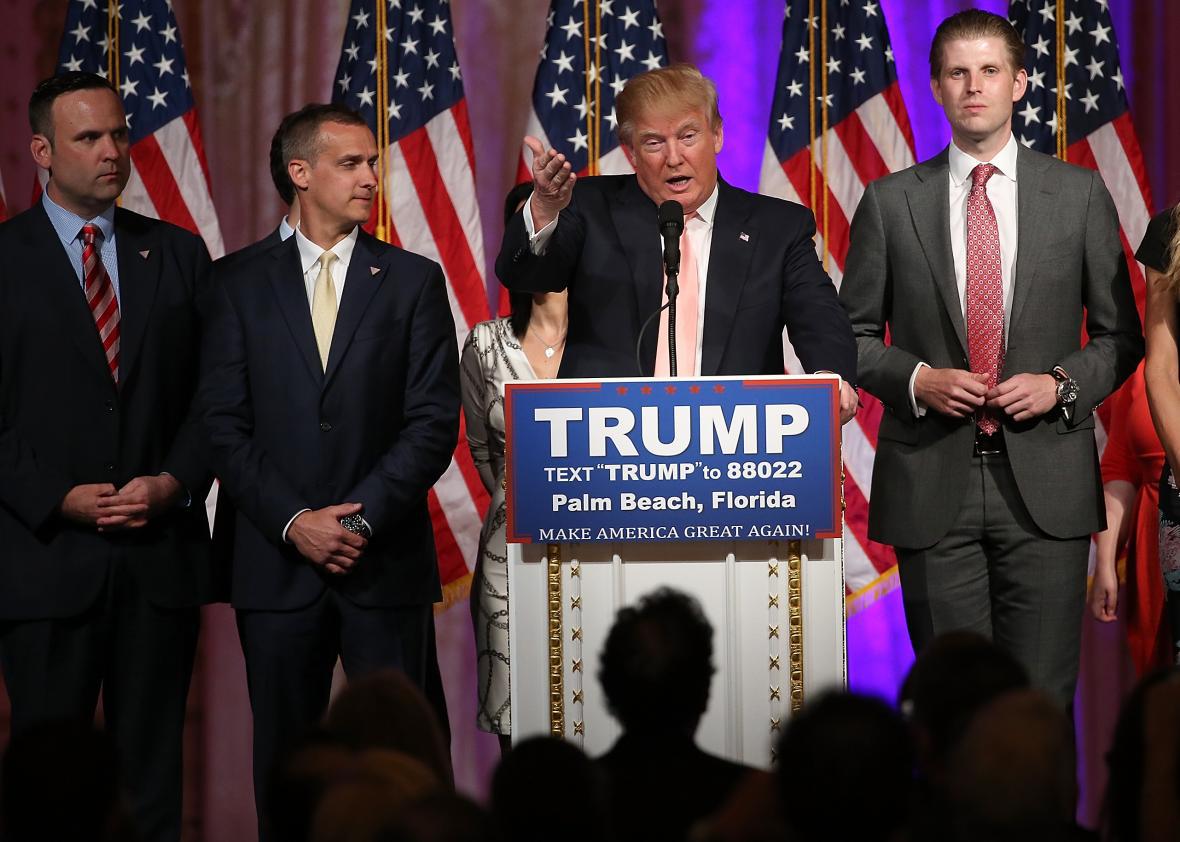During Monday’s presidential debate, Donald Trump came up with a rather unconvincing explanation for the time in 1973 when the Department of Justice accused Trump Management Inc. of discriminating against minorities in its 14,000 apartments in Brooklyn and Queens. Employees of the company marked their applications with a “C” for colored, among other things.
“We settled the suit with zero, no admission of guilt. It was very easy to do,” the candidate said. But perhaps sensing this was not the most convincing retort, Donald “I don’t settle” Trump went on to marshall his best anecdote in demonstration of his tolerance and decency: that he let blacks and Muslims into Mar-a-Lago, the beloved Palm Beach golf club he purchased in 1985.
“I opened a club, and really got great credit for it,” he said. “No discrimination against African Americans, against Muslims, against anybody. And it’s a tremendously successful club. And I’m so glad I did it, and I have been given great credit for what I did. And I’m very very proud of it. And that’s the way I feel. That is the true way I feel.”
It’s not the first time that Trump has used Mar-a-Lago as an example of his munificence. In March, he told the same story on Good Morning America, adding that “there’s nobody that has done so much for equality as I have.”
In 1997, 12 years after purchasing his beloved club, Trump sued the city of Palm Beach for $100 million alleging that it was giving him trouble over a zoning issue because he let blacks and Jews into Mar-a-Lago. At the time, Abraham Foxman, the leader of the Anti-Defamation League in New York—which had previously pressured Palm Beach clubs to open their membership—was “concerned that Mr. Trump was using the charge of anti-Semitism for his own mercantile ends,” according to the Wall Street Journal. He called Trump and got him to modify his charge and later praised him.
It’s really not the civil rights story of our time, and surely Trump could come up with some better human-interest anecdote to illustrate his compassion and tolerance. (The butler at the club, and later in-house historian, did call President Obama a “Kenyan fraud” and call for his assassination.)
But what stands out is that every time Trump brings this story up, he insists on one thing: the credit he got. He’s not proud of it because it was the right thing to do or even because it was a good business decision. It was a thing he did that people liked, and that makes him happy.
